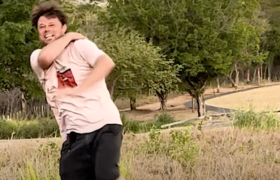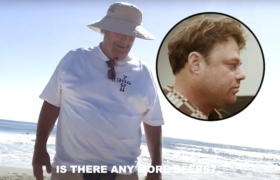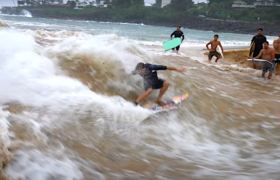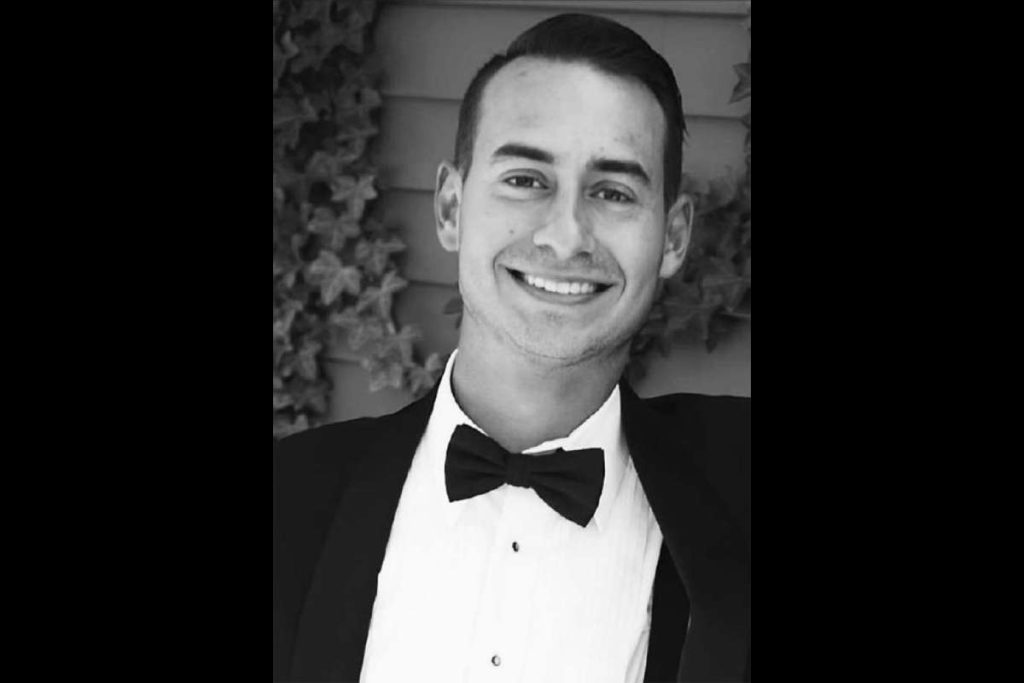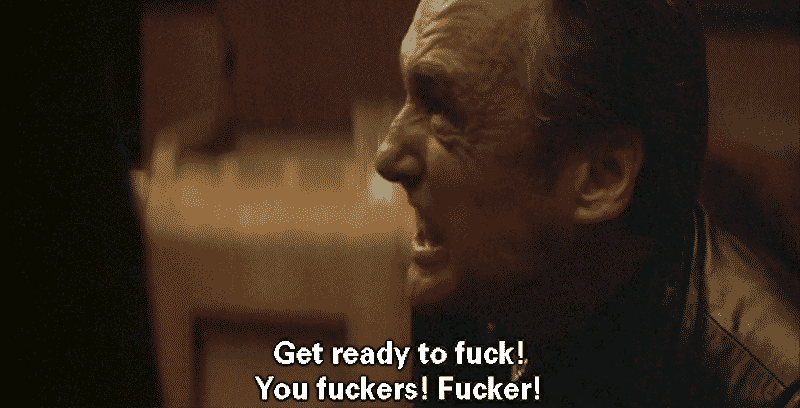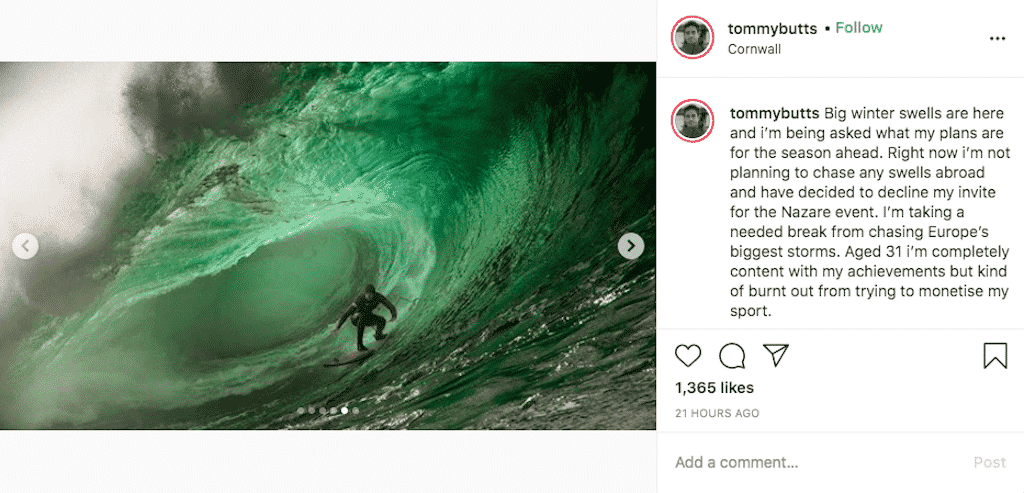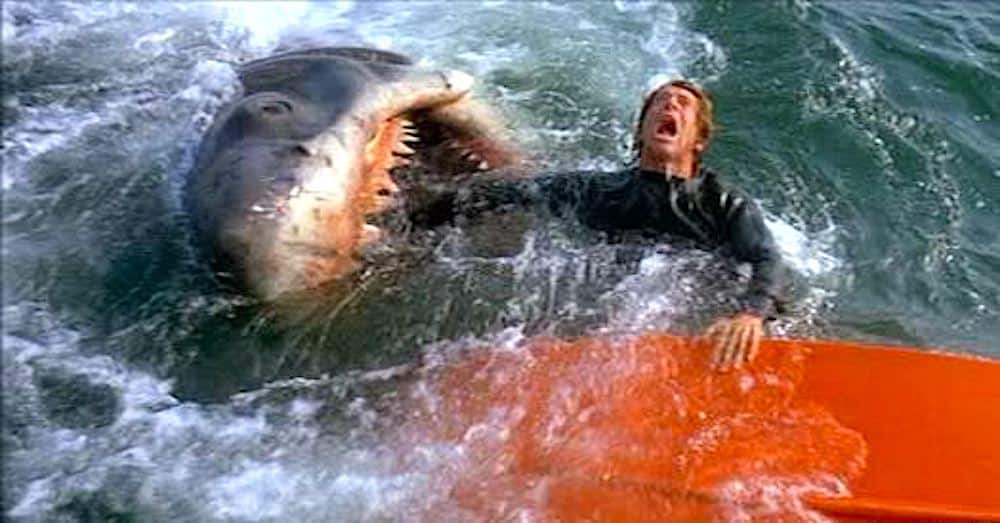A surfer dead, a thirty-million dollar sale of the park blocked pending the verdict, allegations of fraud.
(Editor’s note: Over the next two weeks, we’ll be running a four-part investigative series on BSR Surf Resort by Cedar Hobbs, whom you already know and perhaps secretly love. Was New Jersey surfer Fabrizio Stabile’s death caused by a negligence and the matter covered up, as alleged by his family in their ongoing wrongful death lawsuit? Was the pool’s water, dyed a fabulous blue-green, coloured to cover “a pathogen soup” in which deadly bacteria thrived? Today, part one, the background of the death and the lawsuit.)
On September 8, 2018, New Jersey surfer Fabrizio Stabile and a group of friends visited the BSR Surf Resort.
Less than two weeks later, Stabile, who was twenty-nine, died in a hospital bed.
His death was attributed to a brain-eating amoeba; his physicians calling it primary amoebic meningoencephalitis and Naegleria fowleri infection of the central nervous system.
According to the Center for Disease Control and Prevention, Naegleria fowleri “infects people when water containing the ameba enters the body through the nose.” Infections cannot occur from drinking contaminated water.
Infections are extremely rare. From 2010 to 2019, only 34 infections were reported in the U.S.
They tend to occur during the summer months, “when it is hot for prolonged periods of time, which results in high water temperatures and lower water levels.”
The fatality rate is over 97%. Only four people out of 143 infected in the United States between 1962 and 2017 have survived after contracting the amoeba, according to the CDC.
Seven months after his death, Stabile’s parents filed a suit against BSR Surf Resort, owned by Stuart Parsons, in the District Court of McLennan County, Texas, for more than a $1 million.
The complaint claimed that Fabrizio Stabile was exposed to the amoeba at BSR.
The Stabiles alleged gross negligence, asserting that BSR “had subjective awareness of the risks involved, but nevertheless proceeded with conscious indifference to the rights, safety, and/or welfare or others.”
They additionally asserted a premises liability claim, arguing that BSR knew, or should have known, that there was a substantial risk of a recreational water illness that posed “an unreasonable risk of death or serious bodily harm to Fabrizio Stabile.”
Lastly, they asserted a wrongful death claim, asserting that Stabile died as a result of BSR’s wrongful conduct.
In December 2019, apparently in response to a pending sale of BSR, the Stabiles filed a motion to protect the cash sale proceeds.
According to the motion, only a month after the filing of the lawsuit, “Parsons entered into discussions to sell the assets of BSR.” Notably, the sale would have apparently separated the liabilities, where they would have been kept in “shell corporate entities” owned by Parsons.
It further alleged that the pending transfer was fraudulent, as evidenced by an alleged “massive chlorination of the surf pool” prior to a CDC inspection and alleged false statements to the press “about the pre-inspection chlorination.”
The Stabiles detailed several other examples of behavior that they contended showed that Parson’s had “a tendency toward fraud.”
These included the alleged destruction of evidence through a chlorination of the surf pool the day before a CDC inspection.
And the fact that Parsons allegedly “set up numerous LLC[s] and trusts, all of which he [was] the sole owner and officer [of].”
The last was an alleged event in which Parsons lost his phone in Lake Whitney “just before being required to produce the text messages in discovery.”
BSR filed a response that same month. They asserted that the motion for protection of cash sales was “extraordinary and unprecedented” as it requested the Court to hold proceeds from a non-fraudulent transfer.
BSR denied that there had a been a hyper-chlorination of the pool prior to the inspection, arguing that CDC test results had in fact shown that chlorine was not detected.
They further denied that Parsons had lied to the press.
They also called the allegation that Parsons had “purposefully” dropped his phone in Lake Whitney “nothing more than mere conjecture,” as the text messages sought were later recovered and produced by a forensic data expert.
On December 21, 2019, the presiding judge submitted an order that required BSR to preserve the proceeds of the sale, effectively stopping the sale.
BSR appealed the order in January 2020, arguing that order should have been vacated as it failed to satisfy the relevant legal requirements, calling it “a sword over the Defendants’ neck held at the whim of the Plaintiffs” and an attempt to force a settlement.
In a brief filed January 7, 2020, BSR pushed back on the notion that Stabile had been infected at BSR, asserting “no one has made a judicial finding that Stabile was infected in the only body of water that he visited at BSR.” They further implied that Stabile may have contracted the amoeba at his job at the New Jersey Department of Environmental Protection, which “involved collection of water samples.”
BSR additionally claimed that the sale was not fraudulent, asserting that there was no evidence of attempts to destroy evidence.
The brief called the pending sale “an arm’s length transaction for a fair price.”
The court denied the motion and later referred the case to mediation.
BSR rejected that order in March, calling mediation “impractical” and claiming that further time to consider mediators would “not aid in an agreement,” leaving the parties in a stalemate.
Oral argument is scheduled for November 3.
